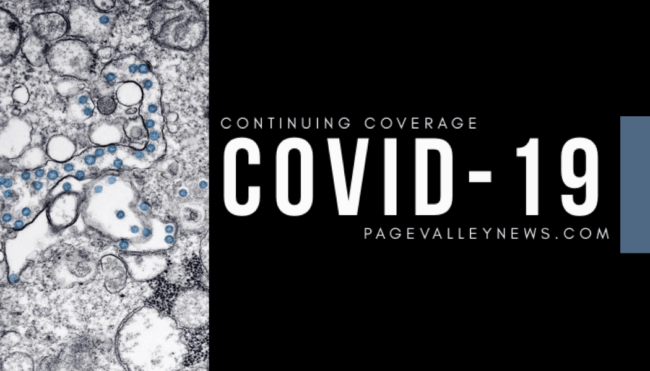
~ Press release issued by Valley Health on April 21
WINCHESTER — As Valley Health System has worked diligently to prepare for and treat COVID-19 patients and protect patients, staff and the community from virus exposure, leaders acknowledge the difficulty of sustaining payroll for its workforce when many of the not-for-profit system’s services have been curtailed or temporarily suspended.
Valley Health has announced a Paycheck Protection Plan, including a number of workforce and compensation changes for its more than 6,000 caregivers, and committed necessary resources from reserve funds to retain and pay staff for the next 90 days at a minimum.
Chief among these changes is Valley Health’s commitment to maintain at a minimum 70 percent of the base pay for all full time and part time employees who may be experiencing a reduction in their work hours due to COVID-19.
“We are experiencing a profound ‘perfect storm’ of factors which are significantly impacting our community’s use of our healthcare services,” said Mark H. Merrill, Valley Health President and CEO. “There is also uncertainty about the predicted volume and timing of ‘peak’ COVID-19 cases, which makes it difficult to predict when infection risks will decline in our community and services may safely resume. We are taking steps to continue to serve our community now, through the pandemic and beyond.”
Valley Health’s swift embrace of social distancing and flattening the curve has successfully reduced personal interaction across all sites of care.
In the last month, the health system has postponed elective surgeries and procedures, non-urgent outpatient visits and outpatient diagnostic testing at its six hospitals. Valley Health’s wellness and fitness centers and outpatient rehabilitation sites have closed, inpatient and outpatient volumes across the system have dropped dramatically, and Valley Health physician practices report a high number of cancellations and patient no-shows.
Despite efforts to boost telemedicine services and virtual patient care as a safe alternative to in-office care, patient visits remain significantly below pre-COVID-19 levels.
“Valley Health’s employee-caregivers are our single most important asset,” said Joseph F. Silek, Chair of the Valley Health System Board of Trustees; “accordingly, the top priority of the board and the management team is to assure they are retained to the fullest extent possible during this especially challenging time.”
To maintain its valued workforce, Valley Health is initiating strategies including: a system-wide hiring freeze for non-essential positions, reduced hours for certain non-essential staff, required use of paid time off, adjustments in employee compensation including postponing annual merit pay increases, and deferring all non-essential capital spending.
In addition to the above steps, the Valley Health Board of Trustees has authorized up to an additional $50 million to supplement employee pay over the next 90 days. The goals are to minimize the impact on employees and enable the organization to retain staff until normal operations can resume.
“We are taking these steps to ensure that Valley Health remains a financially strong organization, and more importantly, to ensure that we are well-positioned to fulfill our mission to provide safe, quality care to our friends, neighbors and loved ones, today and into the future,” Merrill said. “At a time when many local businesses are laying off employees or closing, hundreds of health systems nationally are furloughing large portions of their workforce, and record numbers of Americans are filing for unemployment, Valley Health is committed to standing by our employees and community, and minimizing the impact of this pandemic.”
“We are cautiously optimistic that these short-term measures will keep Valley Health in a strong position, so we can quickly and efficiently ramp back up to capacity when this crisis ends,” Merrill continued. “Our thoughts are with all of those affected by this pandemic as we remain steadfast in our commitment to serving our community by improving health.”



Be the first to comment